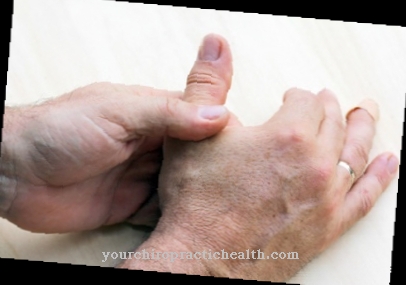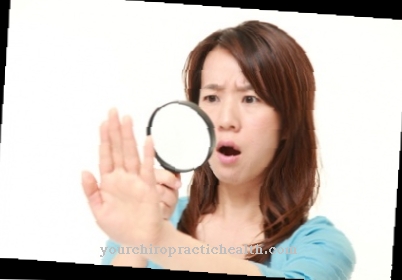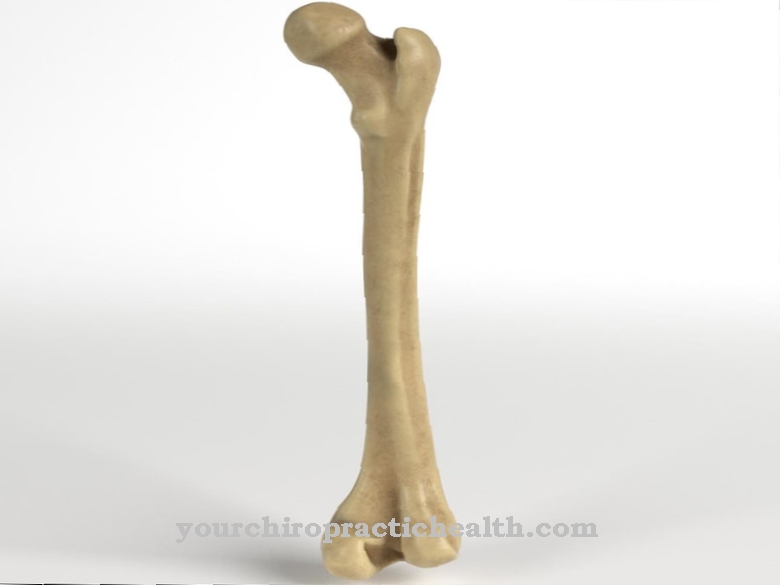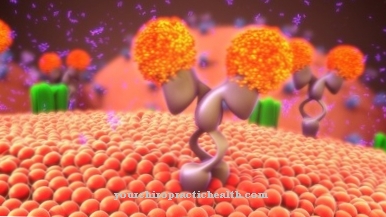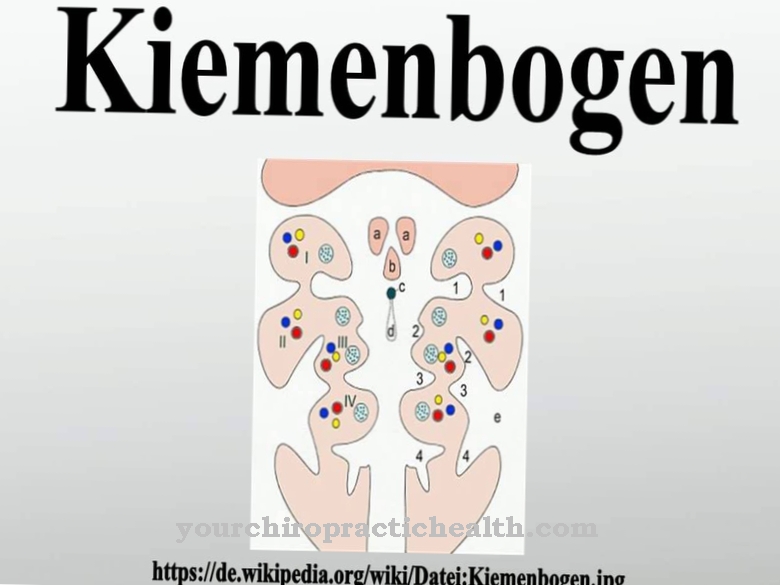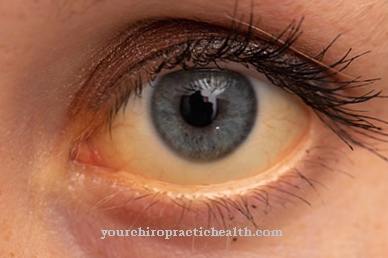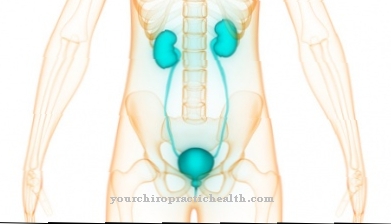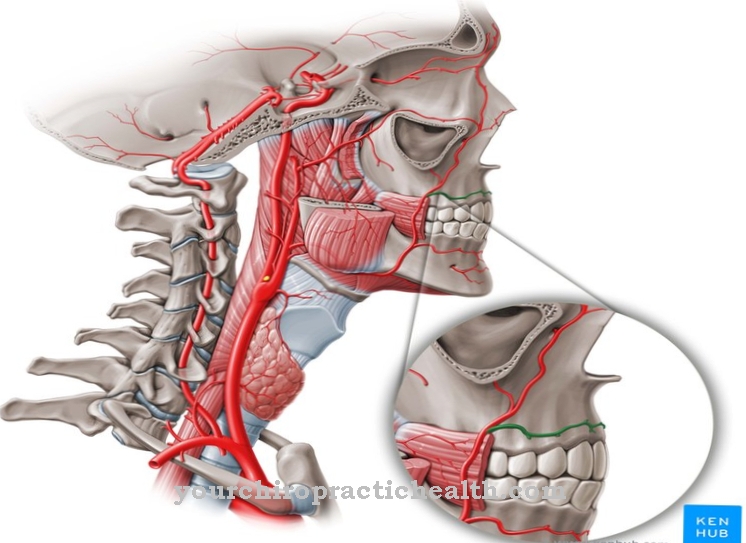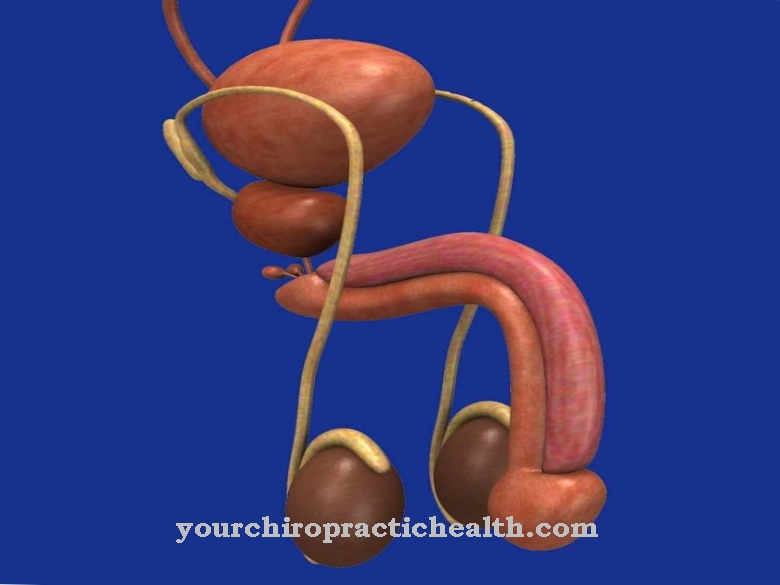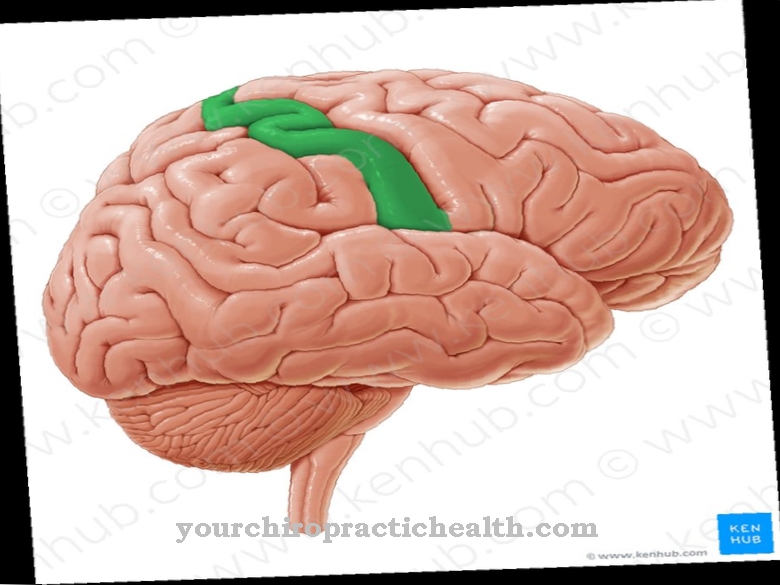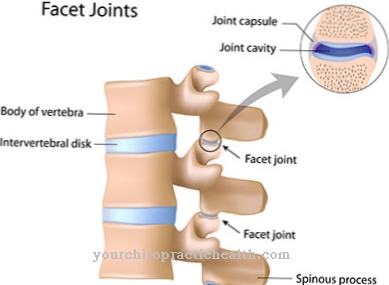In a healthy heart, the heart rhythm is determined by the sinus node and transmitted to the heart chambers via the AV node. With cardiac arrhythmias like that AV block (atrioventricular block) this conduction is disturbed.
What is atrioventricular block?

An AV block (atrioventricular block) leads to a cardiac arrhythmia that is relatively common. While the heart beats around 60 to 80 times per minute in a healthy state, with this disease it slows down to up to 40 beats per minute, as the transmission of stimuli from the sinus node on the right atrium to the AV node above the right ventricle is insufficient.
The slowing of the heartbeat is also known as bradycardia. A bradyarrhythmia can also occur. Then the normal heartbeat sequence is disturbed. An AV block can be divided into three different degrees, depending on the symptoms.
In the 1st degree there is only a slowdown in the conduction of stimuli, but this does not cause any complaints. The 2nd degree denotes the partial failure of the stimulus transmission, while in a 3rd degree AV block no further conduction takes place.
causes
Most often, an AV block occurs with increasing age, because the conduction of stimuli in the heart also ages and thus reduces its performance. Other possible causes are cardiac muscle inflammation and a disruption of the body's electrolyte balance. Above all, an increased potassium level should be mentioned here.
The use of certain medications such as digitalis, quinidine or beta blockers can also be the cause. Even with an underactive thyroid gland, AV block can occasionally occur, as can congenital heart defects or chronic heart diseases such as Lenègre's disease or coronary heart disease. A heart attack is rarely the trigger for an AV block.
You can find your medication here
➔ Medicines for cardiac arrhythmiasSymptoms, ailments & signs
In the worst case, the affected person can die from the AV block. This leads to cardiac arrest. If this is not treated quickly enough, the affected person dies. However, this case usually only occurs if the AV block is not treated and symptoms are ignored.
The main complaints and symptoms of AV block are a slow pulse. The pulse itself is often irregular, which can be noticeable in a strong palpitation. Cardiac arrhythmias generally also occur, which have a negative effect on the quality of life of the person concerned. The patients often appear tired and exhausted and no longer take an active part in everyday life.
Circulatory problems or dizziness also occur. This can also lead to unconsciousness, in which the person affected can be injured by falling. Most patients also appear pale and have severe cramps from the AV block.
The cramps occur mainly in the chest area and can also lead to fear of death. Many affected people also develop psychological complaints as a result of the AV block and suffer from depression and various psychological moods. Symptoms usually worsen if the atrioventricular block is not treated.
Diagnosis & course
When the medical history is recorded, there are already indications of an AV block for the doctor. The diagnosis is finally made with an electrocardiogram (EKG).The ECG examination is completely painless for the patient. It is used to obtain a graphic representation of the heart currents. By comparing the curves with those of a healthy heart, the doctor can determine exactly where the transmission of stimuli is disturbed and how severe the disturbance is.
If the AV block only occurs temporarily, a long-term ECG is often performed. The patient receives a mobile recording device that can be worn for at least 24 hours. A completely painless ultrasound examination (echocardiography) of the heart can also be performed to clarify the cause of an AV block.
A blood test to determine the electrolytes potassium and sodium is also important. Since first and often second degree AV block usually does not cause any symptoms, it is advisable to have regular ECG examinations performed. 3rd degree AV block can lead to brief fainting spells. If left untreated, it leads to permanent heart failure.
Complications
Complications that arise due to an untreated AV block depend on its etiology and its severity. Lighter forms are usually not noticed by the person concerned and are only minimally restrictive. In severe forms, the signals generated by the sinus node, which spread through the atria and lead to their contraction, are not or only incompletely passed on.
The AV node blocks the transmission of signals to the chambers. Typical complications of the untreated AV block are brief attacks of dizziness and short-term insufficient supply of the retina, so that the affected person “goes black”, especially after physical exertion. In many cases, there are also brief fainting spells.
The complications described are based on an insufficient supply of oxygen, to which the sensitive eyes and the semicircular canals in the inner ear react early with symptoms. If the causative factors are not eliminated, a complete AV block can develop, which inevitably leads to the activation of the second back-up system, the ventricular replacement rhythm. The chambers then contract at the very low and life threatening rate of 20 to 40 beats per minute.
In special cases, an immediately life-threatening cardiovascular arrest can occur. If the causes of the AV block can be identified and eliminated, no further complications are to be expected. In many cases, the therapy consists of the implantation of a cardiac pacemaker, which, if certain special features are observed, allows a largely uncomplicated lifestyle.
When should you go to the doctor?
The heart's atrioventricular (AV) node is made up of specialized heart muscle cells and is part of the heart's conduction system. It is located in the partition between the right and left atrium near the partitions between the two chambers. Its job is to transmit the electrical contraction signal generated by the sinus node to the ventricular system with a slight delay so that the ventricles do not contract until the atria have already relaxed again.
There is a wide variety of AV blocks, categorized into severity levels I, II, and III. In severity I, there is only a delayed onset of contraction of the chambers because the forwarding of the contraction signal through the AV node is delayed by more than 200 milliseconds. The symptoms are usually not noticeable subjectively and are only discovered if an electrocardiogram (EKG) is made by chance. Symptoms such as irregular heart rhythm, dizziness and loss of exercise are only noticeable in severity grade II.
If such symptoms recur or persist, you should definitely consult a doctor who has an EKG machine. The doctor will refer to a cardiologist depending on the diagnosis. In the case of an AV block III, there is a complete interruption of the excitation signal, so that the so-called chamber replacement rhythm kicks in, which can generate a heart rate of less than 40 Hertz. It is a life-threatening condition that can be accompanied by fainting and requires immediate clinical treatment.
Doctors & therapists in your area
Treatment & Therapy
Treatment of AV block depends on the severity of the disease and its cause. If the use of certain medications leads to the occurrence of the cardiac arrhythmia, these must be omitted or replaced with other preparations.
If another disease is responsible, this must be treated in order to normalize the heart rhythm. In the case of symptom-free 1st degree AV blocks, no further treatment is often necessary. A distinction is made between two types of AV block of the 2nd degree, which lead to different prognoses for the patient. If the AV block is of the Wenkebach type, there are often no symptoms. Treatment is then not necessary.
With Mobitz-type AV block and 3rd degree AV block, a pacemaker may be necessary to relieve the patient's symptoms. Otherwise, especially with 3rd degree AV block, circulatory disorders in the brain or the so-called Adam-Stokes attacks can occur, which in turn can lead to respiratory arrest. A doctor should therefore always be consulted immediately if an AV block is suspected.
Outlook & forecast
The so-called AV block causes discomfort and disorders of the heart. In the worst case, these disorders can lead to cardiac arrest and thus to death of the patient. As a rule, patients suffer from a very slow pulse and disorders of the heart rhythm. It is also not possible for the person concerned to carry out physical or sporting activities. Heavy stress leads to dizziness or even loss of consciousness. The victim feels weak and looks pale. Seizures often occur, which can be associated with pain.
In most cases, a diagnosis can be made early on so that treatment can start quickly. Further complaints arise when certain regions of the body are not supplied with enough oxygen. These can be damaged or die off completely. The pulse can also slow down so much that it eventually comes to cardiac arrest. This can also occur unexpectedly without any previous complications. The treatment usually takes place with the help of drugs or implants that support the heart. This can reduce a large part of the complaints. However, life expectancy is reduced due to the AV block.
You can find your medication here
➔ Medicines for cardiac arrhythmiasprevention
Since an AV block often occurs with increasing age, patients usually cannot take any active preventive measures to avoid it. In general, a healthy lifestyle also helps prevent heart disease. When taking medication, attention should be paid to side effects. If symptoms arise, a doctor should be consulted at an early stage to clarify an AV block.
Aftercare
With an AV block, the patient has only very limited options for follow-up care. As a rule, a pacemaker has to be built into the patient's body in order to permanently alleviate the symptoms. Early diagnosis and treatment have a very positive effect on the further course of the disease and can prevent the person concerned from premature death.
In some cases, the person may also need to take medication to relieve the symptoms. It is important to ensure that it is taken regularly and that it may interact with other drugs. Treatment of the AV block should be initiated as soon as the first symptoms appear in order to prevent possible respiratory failure.
It is not uncommon for those affected to experience psychological upset or even depression as a result of the AV block. Conversations with friends or with your own family can also have a positive effect on the course of the disease. Contact with other people affected by the disease can also be very useful.
In general, the person concerned should not engage in strenuous activity or exercise in order to avoid unnecessary stress on the heart. A healthy lifestyle with a healthy diet also has a positive effect on the course of the disease. The person concerned should refrain from smoking.
You can do that yourself
Everyday life and self-help measures when an AV block occurs depend on the type and severity of the AV block. A typical problem with AV block is the transmission of the electrical contraction signal of the atria generated by the sinus node to the ventricles. Either the signal is delayed too much or it is not passed on at all.
A first-degree AV block usually proceeds without subjectively noticeable symptoms. Special behavior in everyday life or even self-help measures are therefore unnecessary in these cases. After a second-degree AV block of the Wenckebach or Mobitz type has been diagnosed, it is advisable to first check and adjust the prescribed drugs such as cardiac glycosides, beta blockers or calcium antagonists in consultation with the treating doctor.
As self-help measures and behavior in everyday life, light exercise training without extreme physical stress is recommended, a diet that contains as many natural foods as possible and is above all rich in omega-3 fatty acids. Omega-3 fatty acids are polyunsaturated fatty acids, a few of which are essential for the metabolism and are an important component of all membranes and serve as the basis for the body's own synthesis of some hormones.
Regular relaxation exercises such as autogenic training, Qi Gong or yoga are helpful and effective. Complete third-degree AV block is an acute heart emergency that requires immediate clinical treatment. In most cases, a pacemaker needs to be implanted.


.jpg)

.jpg)

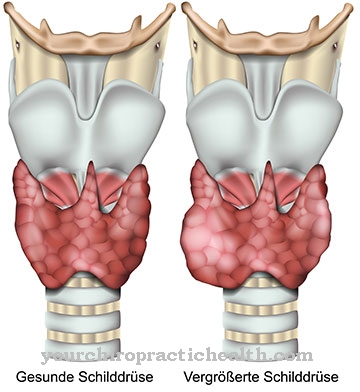

.jpg)

